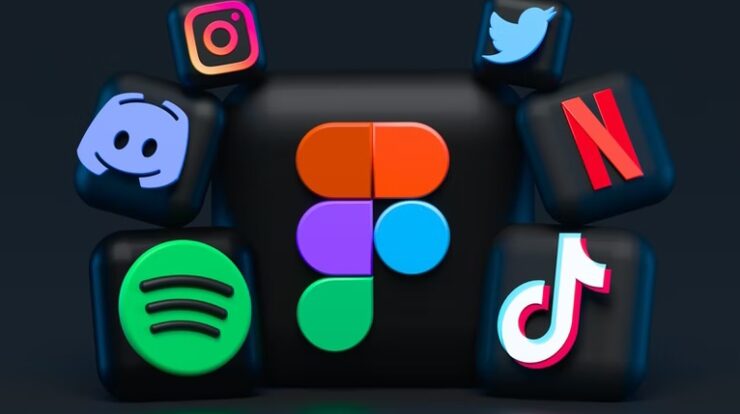
Marketing needs to change with the times, or more specifically the internet. Therefore, it’s important as a marketer to keep up to date with what’s happening on the internet.
Social media is a big part of digital marketing, and a big part of a user’s life on the internet. If you are looking to market to the masses, that’s where you need to start. And the platforms know this. That is why we are seeing a lot of added features to previously bog-standard platforms that allowed you to keep in touch with your nana in another state. If you’re interested in how these social media features affect your marketing campaign, read on.
Instagram’s push to retail
Instagram has released a lot of features in the past couple of years that signals their ever-growing migration from a platform centred around communication, to a platform centred around shopping.
Meta isn’t stupid. They saw the data that said that more and more people were finding what they wanted to buy on social media, and more start-up businesses were using Instagram as a marketplace where they could “Get your nerdy merchandise and art here” and decided they wanted to encourage it.
And so, we were blessed with a new form of tags. Ones that creators could add to the items they were showing off, and that would send users straight to the shop with one click.
But that isn’t all. Instagram has also released an affiliate marketing feature. Looking something like a commission’s forum, creators looking for brand deals can throw their hat into the ring, and affiliate marketing managers can access to better look for and get in contact with potential marketing partners.
YouTube’s push to short-form video content
YouTube certainly wasn’t the only platform to notice when TikTok exploded during lockdown, sending a desire for short-form video content skyrocketing, but it was one of the most or least surprising, depending on how you look at it.
Once upon a time, before the days of Paul brothers or Jeffree Star, there was a small collection of YouTubers on the platform who knew for a fact that 3 minutes was too much time to fill and too long to keep any audience member’s attention.
Since then, YouTubers are expected to hit 10 minutes or fail, and more of them are embracing the deep dive content, that could see you sitting for hours watching a video on top crypto exchange or the life of Spongebob Squarepants.
And yet, we’ve switched again. YouTube now has a dedicated trending section for short-form video content, which gains views that are reaching the trillions!
Short form video content is indeed the way of the future, opening up a lot of ways to display a project, including with demonstrations and behind the scenes content, allowing users to pay attention, instead of having what they were watching interrupted by “Today’s video is sponsored by…!”
Twitter’s push to podcasting
Podcasting is a concept that is rapidly gaining popularity. It’s simpler formula than video allows for large batches of content to be made with minimal editing, taking a lot of the hard work out of it. Plus, it offers a lot of marketing opportunities in a format that has been heartily embraced by the public. They can listen as much as they wish, with their hands free to do other things, or simply talk them to sleep, and enjoy a deep dive into any given subject.
So, it’s no surprise then that a lot of social media platforms have embraced podcasting. Facebook is launching their podcasting platform, where you can create, post, and promote all in the one place. Twitter is currently testing a podcast tab, where users can organically find podcasts that interest them. Meanwhile, LinkedIn has launched their own podcast platform, where a selected round of industry experts is creating podcasts for the new platform. Will anyone be able to create on it in the future? Who knows? For now, the business networking platform is focusing on business content to fill their airwaves.
Facebook’s push to VR
If you watched the instantly-memable announcement of Facebook, sorry, Meta CEO Mark Zuckerberg, you will know that he has his sights set on something new, and he’s not about to let us forget it anytime soon. We are getting a Ready Player One experience whether we want it or not.
Zuckerberg’s idea, which he called “the next step in the internet” is to ultimately move Facebook into virtual reality, where we can all enjoy a catch up with our pals, represented by avatars, in a virtual room. Or, even host office meetings, because that sounds fun, right?
Whatever you think of the new VR experience, there are already signs of it coming to fruition, and Meta is at the front of it. At the moment they are reworking and releasing guidelines of concern around marketing in a VR experience, since there are bound to be a few confused early tech-addicts not even aware that they are being marketed to.
With the rise of CGI influencers currently going on, it’s worth looking into these guidelines for an idea of what the market might look like in the future.


